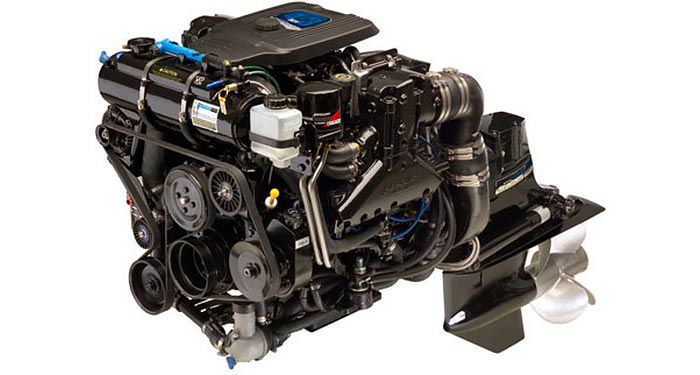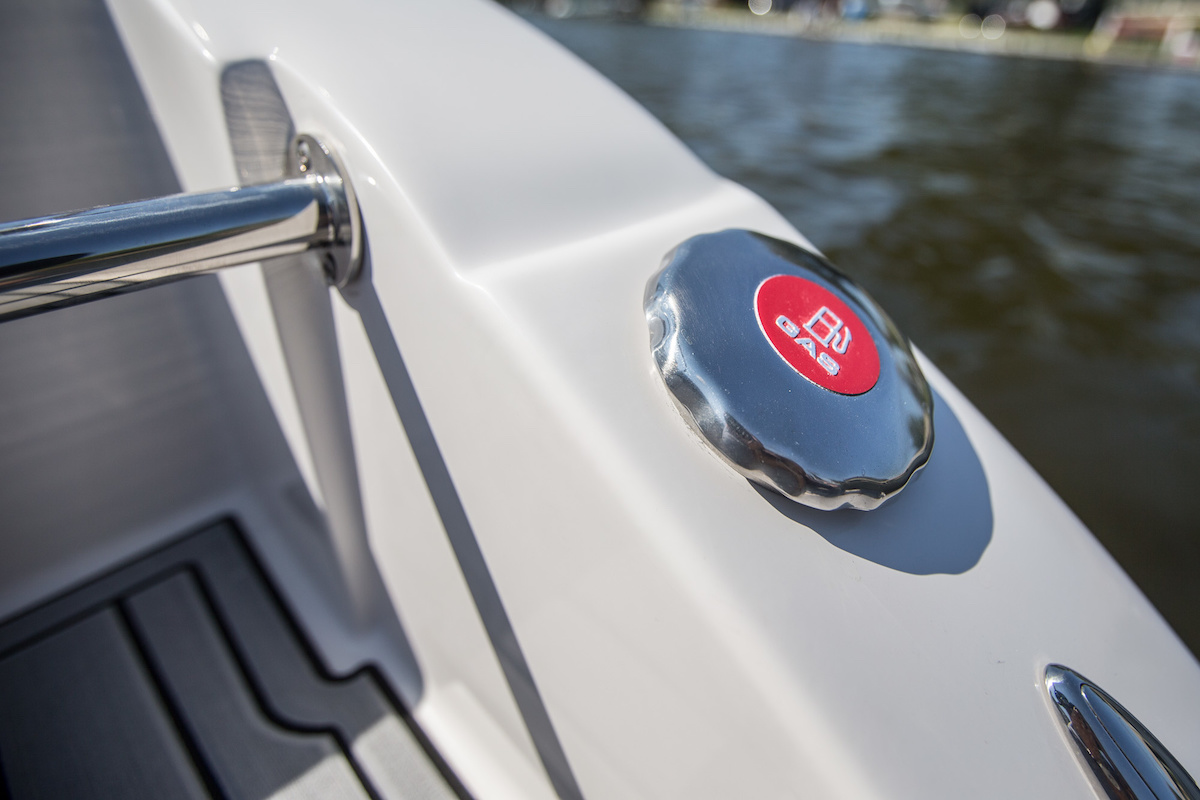Regular oil should not be used in a boat motor. It is important to use marine-specific oil formulated for boat engines to ensure optimal performance and protection.
Using regular oil can lead to premature wear, overheating, and potential engine damage. Marine oil is designed to withstand the unique demands of boating, such as higher operating temperatures, increased moisture exposure, and prolonged periods of idling. By using the correct oil, boat owners can maintain the longevity and reliability of their boat motors, ensuring smooth operation and avoiding costly repairs.
Marine Engines And Regular Oil: A Mismatch?
Marine engines operate under unique conditions that demand specialized lubrication. Let’s delve into the implications of using regular oil in boat motors.
Differences Between Marine And Automotive Oils
Marine oils are designed to combat water contamination and offer superior rust protection.
Regular automotive oil lacks the necessary additives to protect marine engines.
Automotive oils may not provide sufficient lubrication for high-revving boat motors.
Impact Of Using Regular Oil On Boat Motors
- Reduced lubrication can lead to increased friction and wear on engine components.
- Water intrusion can cause corrosion and damage vital engine parts.
- Poor performance and reduced engine lifespan are common outcomes.
Using regular oil in a boat motor can void warranties and lead to costly repairs.
Risks Of Using Regular Oil In Boat Motors
When it comes to the maintenance of boat motors, using the right type of oil is crucial. Using regular oil in boat motors can pose several risks that can impact the performance and longevity of the engine. Understanding these risks is essential for boat owners to make informed decisions about the lubricants they use in their marine engines.
Lubrication Challenges In Marine Conditions
Marine environments present unique challenges for lubrication due to exposure to water, salt, and varying temperatures. Regular oil may not offer the necessary protection against corrosion and water ingress that is essential for boat motors operating in these conditions.
Engine Wear And Tear Concerns
Boat motors are subjected to high RPMs and heavy loads, making them susceptible to increased wear and tear. Using regular oil may not provide the required level of lubrication to protect the engine components, leading to premature wear and potential damage.
Performance Setbacks With Regular Oil
Performance setbacks with regular oil can significantly impact the operation of a boat motor. From power deficiencies in high moisture environments to the heat dissipation dilemma, using regular oil can lead to a range of issues that compromise the performance and longevity of the motor.
Power Deficiencies In High Moisture Environments
Regular oil’s inability to combat the effects of moisture can result in power deficiencies in boat motors. When exposed to high moisture environments, the oil may break down, leading to reduced lubrication efficiency and increased friction within the engine components. This can ultimately impede the motor’s ability to deliver optimal power output, affecting its overall performance and reliability.
The Heat Dissipation Dilemma
Boat motors operating with regular oil often face the heat dissipation dilemma. In high-temperature conditions, such as prolonged periods of operation or in warm climates, regular oil may struggle to dissipate heat effectively. This can lead to elevated operating temperatures within the motor, increasing the risk of thermal breakdown and accelerated wear on critical engine parts.

Credit: www.boatus.com
Potential Damage To Boat Motors
When it comes to boat maintenance, using the right type of oil for your boat motor is crucial. Putting regular oil in a boat motor can lead to potential damage, including corrosion, rust formation, and long-term engine complications. Let’s explore these potential risks in more detail.
Corrosion And Rust Formation Risks
Regular oil lacks the necessary additives to protect boat motors from the harsh marine environment. Without proper protection, the metal components of the motor are at risk of corrosion and rust formation. This can lead to decreased performance and shortened lifespan of the motor.
Long-term Engine Complications
Using regular oil in a boat motor can result in long-term engine complications. The lack of specialized marine-grade additives in regular oil can lead to increased wear and tear on vital engine parts, potentially causing irreversible damage over time. This can result in costly repairs and even the need for premature replacement of the entire motor.
Manufacturer Recommendations And Warranties
It is not recommended to put regular oil in a boat motor as it may not meet the manufacturer’s recommendations and could void the warranty. Using the recommended oil is crucial for optimal performance and longevity of the engine.
When it comes to boat maintenance, one question that often arises is whether you can use regular oil in a boat motor. While it may seem like a cost-effective solution, it is essential to know the manufacturer’s recommendations and warranties before making any decisions.Adhering To Manufacturer Oil Guidelines
Using regular oil in a boat motor can have adverse effects on its performance and longevity. Manufacturers recommend using marine-specific oils to ensure optimal engine performance and protection against corrosion. These oils are formulated to withstand the harsh marine environment and provide superior lubrication to the engine’s moving parts. Using non-marine oils can lead to engine damage, reduced fuel efficiency, and increased emissions. It can also void the manufacturer’s warranty, leaving you responsible for any repairs or replacements.Warranty Implications Of Using Non-marine Oils
Manufacturers provide specific guidelines for oil usage in their boat motors. Failure to adhere to these guidelines can void the warranty and leave you liable for any damages caused by using non-marine oils. Therefore, it is crucial to understand the warranty implications of using non-marine oils in your boat motor. If your boat is under warranty, it is essential to use the manufacturer’s recommended oils to avoid any potential warranty disputes. In conclusion, using regular oil in a boat motor may seem like a cost-effective solution, but it can have severe implications on your engine’s performance and longevity. Always adhere to the manufacturer’s oil guidelines to ensure optimal performance and protect your warranty.Tips For Choosing The Right Oil For Your Boat Motor
When maintaining your boat motor, using the correct oil is crucial for optimal performance. Below are some essential tips to help you select the right oil for your boat motor.
Understanding Oil Viscosity Ratings
Oil viscosity ratings indicate the oil’s thickness and its ability to flow at different temperatures. Choosing the correct viscosity ensures proper lubrication in various weather conditions.
Benefits Of Synthetic Oils In Marine Applications
Synthetic oils offer superior protection, increasing engine life and performance. They provide better lubrication, reduce friction, and enhance fuel efficiency in boat motors.
Proper Maintenance For Marine Engines
Ensure proper maintenance for marine engines by using the correct oil type. Avoid using regular oil in a boat motor as it may not provide sufficient lubrication for the engine’s specific needs. Always refer to the manufacturer’s guidelines for the appropriate oil to keep your boat engine running smoothly.
Regular Oil Changes For Boat Motors
Seasonal Maintenance Routines
Proper maintenance for marine engines is crucial to ensure longevity and performance. Regular oil changes are essential for boat motors. Seasonal maintenance routines help prevent breakdowns. Regular oil changes protect marine engines from wear. Seasonal maintenance routines address specific needs. Regular oil changes should be done at recommended intervals. Seasonal maintenance routines vary based on usage. Regular oil changes keep boat motors running smoothly. Seasonal maintenance routines include inspection and cleaning. Regular oil changes extend the life of marine engines. Seasonal maintenance routines are important for reliability.
Credit: www.youtube.com
Alternatives To Regular Oil: Exploring Options
Discovering alternatives to regular oil for boat motors is crucial. Using the correct oil type ensures optimal performance and longevity. Always refer to the manufacturer’s recommendations for the best oil choice.
When it comes to maintaining a boat motor, one of the most important factors is choosing the right type of oil. While regular oil may seem like a convenient option, it may not be the best choice for your boat motor. Luckily, there are alternatives available that can provide better performance and protection.Marine-specific Oil Advantages
Marine-specific oils have been designed specifically for use in boat motors. These oils are formulated with additives that offer superior protection against rust, corrosion, and wear. They also have a higher viscosity index, which means they can maintain their performance in a wide range of temperatures. Additionally, marine-specific oils have been tested and approved by boat motor manufacturers, ensuring they meet the necessary standards for performance and protection.The Role Of Additives In Marine Oils
Additives play a crucial role in marine oils, providing enhanced protection and performance. Some common additives found in marine oils include:- Detergents: These additives help to keep the engine clean by preventing the buildup of deposits and sludge.
- Anti-wear agents: These additives provide extra protection against wear and tear, reducing the risk of engine damage.
- Corrosion inhibitors: These additives help to prevent rust and corrosion, which can be especially important in saltwater environments.
- Viscosity improvers: These additives help to maintain the oil’s performance in different temperatures, ensuring it can protect the engine under a wide range of conditions.

Credit: www.discoverboating.com
Conclusion
It is crucial to use the appropriate oil in your boat motor to ensure optimal performance and longevity. Regular oil may not have the necessary additives to withstand the harsh conditions of marine environments, potentially leading to engine damage. By using the recommended marine oil, you can protect your boat motor and enjoy smooth sailing for years to come.
Remember, always consult your boat’s manufacturer or a professional for specific oil recommendations.
